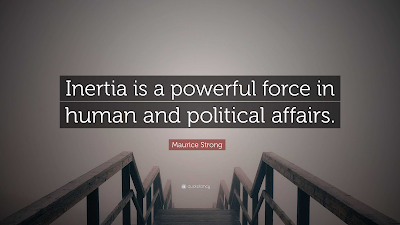Whenever our next election rolls around, I'll be ready - ready not to vote for the Conservatives. Ready not to vote for the Liberals. By default, I shall, in all likelihood, vote for the NDP. And it will hardly be an enthusiastic endorsement.
Our political landscape, with few exceptions, has grown stale and complacent. Once it sets in, inertia is a hard force to break free from. Journalist Justin Ling takes some lessons from the recent American presidential race.
In trying to paint Trump as a danger to democracy, the Democrats twisted themselves in knots to become guardians of the status quo. They avoided, even shut down, difficult conversations on pressing social issues because they are fearful of how bigots might weaponize those discussions.
Harris spent the campaign bombarding voters with tightly-messaged scripts about why they should vote against Trump. By election day, Americans had few good reasons to vote for the vice president. And yet it’s this strategy that Trudeau looks set to replicate.
Unfortunately, if the polls are to be believed, Canada's electoral die has already been cast, and PP's simplistic, binary rhetoric is captivating many. Indeed, some of his barbs hit quite close to home, if one really examines them. Recently, for example, he gave a hard-hitting address to many of Canada's corporate elites, accusing them of "crony capitalism," saying they and Mr. Trudeau are too close and too dependent on lobbying and subsidies. If he wins, PP promises to change that, a promise that will undoubtedly resonate with many.
For example: longstanding Canadian law restricts foreign ownership in parts of the telecom, media, financial and transportation industries, which has resulted in a consolidation of power in a handful of companies such as BCE, Rogers Communications Inc., Air Canada and the major banks. Harper and Trudeau’s governments have tried at times to stoke more competition, but they’ve mostly stopped short of major reforms to liberalize protected sectors.
There is little doubt that the Trudeau Liberals have a too-close relationship with the powerful.
Poilievre’s “crony capitalism” charge rings true to people like [Jim] Balsillie, who has been critical of the close links between Trudeau’s government and some executives at big companies in highly regulated industries. He cites the example of Navdeep Bains, who was Trudeau’s industry minister, left politics in 2021, quickly landed at Canadian Imperial Bank of Commerce and now works as a senior executive at Rogers — a job announced just weeks after the government allowed Rogers to acquire a large rival cable company.The government has been slow to move on open banking, a regulatory framework that makes it easier for consumers to move around their financial information and use the services of new financial technology startups.“Why after nine years do we still not have open banking?” Balsillie said. “Who’s had total keys to the throne on fixing that for nine years? It’s clear that the Liberals have been captured by Bay Street.”
I suspect those who entertain ongoing outrage over the high costs of wireless and the predatory, protected practices of the banking industry would find little to disagree with here.
Justin Ling is pessimistic about the prospects for change within either the Liberal or NDP leadership.
Trudeau is neither innovating new policy nor reaching out to unlikely places. Their most significant accomplishments of late, national pharmacare and dentalcare plans, won’t cover most working people and come as medicare plunges further into crisis.
The Liberals’ lack of vision or ambition ought to leave an open lane for the NDP to offer a bold, uncompromising, and ambitious agenda for change. Yet they are the architects of the dental and pharmacare plans, and now seem bereft of other ideas. Despite their anti-billionaire rhetoric, Jagmeet Singh’s most ambitious policy is to implement price controls for groceries (also a riff on a Harris policy.) Voters are, understandably, disinterested.
Singh and Trudeau and stuck in their scripts, damned by the anxieties, purity, and dourness of their parties. The only tactic left at their disposal is to compare Poilievre to Trump, unconvincingly and to the frustration of the Conservatives’ new-found working-class base.
Institutional stasis is an almost always-certain eventuality, demonstrated amply in the above. And time on the bench seems to be the only fix to the inertia that currently plagues our politics.Without new vision and new leadership, I suspect the next election will, unfortunately prove current polling to be correct.



